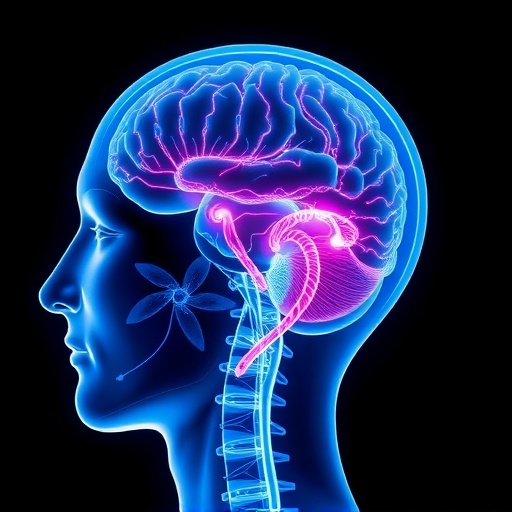New research from the University of British Columbia is reshaping our understanding of multiple sclerosis (MS), revealing that the disease’s earliest warning signs may arise over a decade before any classic neurological symptoms become noticeable. Published in the latest issue of JAMA Network Open, this groundbreaking study leverages extensive provincial health data to track healthcare utilization patterns of more than 12,000 British Columbians, highlighting how patients engage differently with medical services long before an MS diagnosis is confirmed.
This study departs significantly from previous investigations that primarily focused on the years immediately preceding overt MS symptoms, commonly known as demyelinating events, including vision impairment or sensory disturbances. Instead, the UBC research team examined medical records extending up to 25 years prior to symptom onset, as precisely determined by neurologists through comprehensive clinical assessments and patient histories. The analysis revealed a gradual and steady increase in engagements with healthcare professionals starting as far back as 15 years before a patient’s first recognized MS symptom.
Intriguingly, the data unveils a distinct temporal pattern of healthcare visits. Around 15 years before symptom onset, patients exhibited increased visits to general practitioners, primarily for nonspecific complaints such as fatigue, pain, dizziness, and mental health concerns including anxiety and depression. This suggests that MS’s prodromal phase—an early disease stage marked by subtle, often overlooked symptoms—is much longer and more complex than previously understood.
Approximately 12 years before symptom onset, the frequency of psychiatric consultations showed a notable rise. This finding aligns with emerging research indicating that neuropsychiatric manifestations, including mood disturbances, might precede the classical motor and sensory symptoms typically associated with MS. Such early mental health-related signs could potentially serve as critical harbingers, providing clinicians with a window for earlier suspicion and monitoring.
The period eight to nine years before symptom onset marked a discernible increase in visits to neurologists and ophthalmologists. These consultations likely correspond to emerging neurological and visual disturbances such as blurry vision, eye pain, or other subtle signs of central nervous system involvement. This phase represents an intermediary stage wherein symptoms begin to localize but still may not meet the diagnostic thresholds for MS.
Between three and five years prior to symptom onset, there was an uptick in emergency medicine and radiology encounters. This phenomenon may reflect the increasing acuity and specificity of symptoms, compelling patients to seek urgent evaluations and advanced imaging, which are pivotal for the eventual diagnosis of demyelinating conditions.
Strikingly, just one year before the first neurological symptom manifests, physician visits across multiple specialties—including neurology, emergency medicine, and radiology—reach their peak. This crescendo likely corresponds to the transition from prodromal symptoms to overt clinical presentation, during which diagnostic processes intensify, and disease-modifying therapies may be considered.
These insights signify a paradigm shift in the conceptual timeline of MS pathogenesis. By revealing that the disease’s influence on health service use begins many years before symptom onset, the research underscores the extended and intricate prodromal phase of MS. Such recognition opens promising avenues for the early detection of the disease, potentially facilitating interventions that could delay or modify its progression.
Dr. Helen Tremlett, a neurology professor at UBC and senior author of the study, emphasized the clinical implications of these findings. She noted that the nonspecific nature of early symptoms—fatigue, headaches, pain, and mental health issues—frequently misleads both patients and healthcare providers, delaying diagnosis. Recognizing the prodromal phase could thus be transformative, enabling timely monitoring and therapeutic strategies well before irreversible neurological damage occurs.
The study’s methodology is notable for its integration of linked clinical and administrative provincial health data, permitting a detailed longitudinal analysis of physician visits over a quarter-century. This approach surpasses the scope of earlier research that mainly relied on administrative databases and shorter observational windows, offering unprecedented granularity into the subtle healthcare behaviors preceding MS diagnosis.
Furthermore, the research aligns with evolving concepts of the prodromal phase in neurological diseases more broadly, such as Parkinson’s disease, where nonmotor symptoms—mood disturbances, sleep disruptions, and autonomic dysfunction—frequently predate hallmark motor signs by many years. Understanding prodromal features across neurological conditions enhances our capacity to identify at-risk individuals and potentially intervene earlier in disease trajectories.
While cautioning that most individuals presenting with general symptoms like fatigue or anxiety will not inevitably develop MS, the researchers advocate for heightened clinical awareness of these early patterns. Future research may focus on defining specific biomarkers, lifestyle factors, or environmental triggers active during this extended prodromal period, ultimately refining risk stratification and personalized care.
Dr. Marta Ruiz-Algueró, the study’s first author and a postdoctoral fellow at UBC, highlighted the importance of mental health-related symptoms as some of the earliest indicators in the MS prodrome. This raises critical questions about the biological interplay between immune dysregulation and neuropsychiatric manifestations, an area ripe for further exploration that may illuminate the pathophysiology underlying MS onset.
As this paradigm gains traction, the prospect of earlier intervention strategies grows more tangible. Such interventions might range from vigilant monitoring and supportive care to novel preventive therapies aimed at modulating immune responses before significant neurological injury occurs. Early identification and management hold the promise of altering the anticipated course of MS, improving long-term patient outcomes.
Ultimately, this research marks a significant leap forward in MS science, challenging entrenched assumptions about disease timing and offering a richer understanding of the subtle, protracted burden that patients endure before diagnosis. It underscores the necessity of a multidisciplinary approach that integrates neurology, psychiatry, and primary care, ensuring that prodromal signals are recognized and acted upon promptly.
Subject of Research: People
Article Title: Healthcare use before multiple sclerosis symptom onset
News Publication Date: 1-Aug-2025
Web References:
https://jamanetwork.com/journals/jamanetworkopen/fullarticle/10.1001/jamanetworkopen.2025.24635
References:
University of British Columbia study published in JAMA Network Open (2025), DOI: 10.1001/jamanetworkopen.2025.24635
Keywords: Multiple sclerosis, Health care, Autoimmune disorders, Early diagnosis, Prodromal phase, Neurology, Mental health




